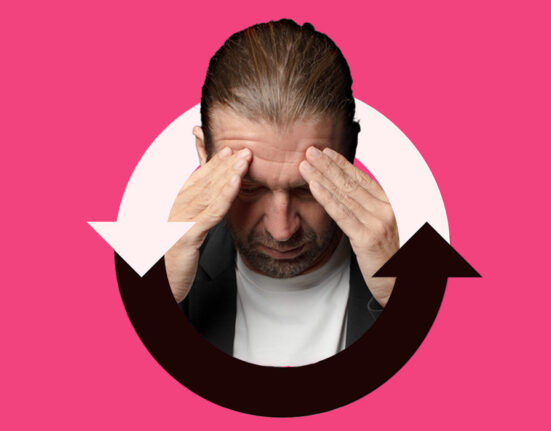Have you ever felt that certain things in your family are never spoken about? For many people, speaking up in the family system might seem like an easy thing to do, like sharing a feeling, giving an opinion, or dealing with a problem. But for a lot of families, this is a lot more complicated. Silence is often a way to deal with painful pasts, trauma, and things that are hard to talk about. This silence, especially when it lasts for generations, can make it harder to heal and understand, leaving emotional scars that last for a long time.
Read More: Breaking the Silence: Exploring the Impact of Childhood Trauma
The Importance of Breaking Generational Silence for Healing
Breaking the silence between generations, especially when it comes to historical trauma, is a very important step towards healing as a group. When trauma is deeply rooted in a family and communication is poor or nonexistent, it can be hard or even impossible to speak up. Trauma can change how families talk to each other, and it can be passed down from one generation to the next. Generational silence isn’t just limited to a lack of communication between family members; rather, it extends to cultural patterns that impact communities. When such experiences are left unresolved, they tend to stick around, affecting every generation, whether they are the result of violence, oppression, or abuse in the family.
Many people consider that the first step towards understanding, making peace, and healing these wounds would be to speak up and make yourself heard. (Bowe, Thomas, & Mackey, 2025)In this article, we will explore how important it is for families to break such silence and heal from past traumatic events that have been revolving between generations. We can learn how speaking up not only helps us feel better but can also help everyone heal by looking at the social and psychological effects of silence. Using different theories and case studies, we will look at how families can start to be more open, honest, and emotionally healthy. (Bowe, Thomas, & Mackey, 2025)
Read More: Family Dynamics: Navigating Relationships and Parenthood in Your Lifestyle
The Role of Silence in Family Systems
In many families, silence isn’t just a lack of words; it’s a way of communicating with each other. Unspoken rules about what not to speak about or memories that hurt can change the way a family works for years, if not generations. In these situations, silence is often a way to protect yourself, especially when families have been through a lot of trauma or hardship. But we must understand that the longer these painful subjects go unaddressed, the worse the emotional wounds can get. Avoiding conflict, keeping peace, or protecting weak members from painful truths are all ways to shield yourself and survive. (Uyeda-Hale, 2023)
The root of generational silence in families is unresolved trauma. When trauma is passed down from one generation to the next, it becomes a part of the family’s shared memory. People in such situations use coping strategies like hiding their feelings and avoiding dealing with painful issues. As a result, being silent or absorbing unspoken rules becomes so normalised that the younger generation gets used to it as a default response. (Bowe, Thomas, & Mackey, 2025)
Additionally, cultural and social factors can make people stay silent, which can make it even harder for families to communicate with each other. For instance, in a lot of cultures, there are strong expectations about keeping the peace in the family and protecting one’s reputation. People might think that addressing dysfunction, trauma, or conflict is rude and disruptive. They’re so focused on keeping peace alive that they indirectly ignore the cause of the problem. This cultural norm can worsen the silence, as family members may fear rejection or shame for breaking unspoken rules.
Read More: Exploring Trauma Dumping: Impact and Coping Strategies
The Impact of Intergenerational Trauma
Before we learn about the impact of intergenerational trauma, we should understand what it exactly means. Transgenerational or intergenerational trauma is when trauma is passed down from one generation to the next. Trauma can be passed down through emotional neglect, abuse, witnessing violence, or experiencing major societal traumas like war or displacement. These traumatic events leave emotional scars that don’t just go away with time. Instead, they are often passed down from one generation to the next, with each generation carrying the emotional weight of their predecessors. (Mooren et al., 2023)
An individual can experience intergenerational trauma in many ways, such as increased anxiety, depression, drug use, and trouble controlling emotions (Mooren et al., 2023). In families, children often unconsciously absorb the emotional and behavioural patterns of their parents or caregivers. Parents who haven’t healed from their own trauma may unintentionally pass down patterns like avoiding emotions, struggling with attachment, and poor communication. Children may struggle to handle their feelings if they can’t understand emotions, which can contribute to ongoing silence. (Uyeda-Hale, 2023)
Read More: How To Regulate Our Emotions?
The Path to Pealing
The path to healing and breaking the silence is never easy; it requires openness, courage, and the willingness to face painful truths. Speaking up within the family can be a powerful step toward healing for both yourself and the entire family. When people in a family start to discuss their feelings and experiences, it makes it easier for others to do the same.
One of the first steps in breaking the silence is recognising how deeply silence hurts you. When you hide your painful feelings, you can become emotionally numb, have problems with relationships, and feel alone. According to Prager (2015), speaking about trauma is important not only for the person going through it but also for the family. When we recognise past hurtful experiences, it opens doors to newfound empathy and compassion.
Read More: Feeling Lonely in a Friend Group? Here’s What It Means and What to Do
Therapeutic Frameworks
Family therapy and trauma-informed care are two examples of therapeutic approaches that can help families break the cycle of silence. For example, multi-family therapy is a very effective way to deal with trauma that has been passed down through generations. In these spaces, families can safely share experiences, understand each other’s feelings, and learn healthier ways to connect.
These therapeutic frameworks promote open conversation, enabling healing for the entire family, not just one person. Additionally, cultural and community support is vital in breaking generational silence. Communities aware of their shared trauma can create safe spaces for families to express their pain and start healing together. Collective healing largely focuses on recognising the deep connection between personal well-being and the well-being of the whole community. (Uyeda-Hale, 2023)
Read More: Trauma-Informed Approaches in Trans Mental Health
Conclusion
To conclude, breaking generational silence in the family system is a necessary step towards healing from past trauma. It allows family members to address their unresolved pain and learn how to communicate better. Speaking up can help heal both the family and the larger community. It is also a powerful way to free yourself from any unspoken rules and protect your self-esteem. We can also say that it lets families heal, grow, and thrive together.
FAQs
1. What is generational silence, and how does it affect families?
Generational silence refers to unspoken family rules where difficult topics like trauma or emotional pain are avoided or left undiscussed. This silence can cause unresolved emotional issues to pass through generations, hindering healing and creating misunderstandings and disconnection within families.
2. How can breaking generational silence help heal family trauma?
Breaking generational silence allows family members to acknowledge and address past traumas, creating an opportunity for collective healing. Open communication rebuilds trust and allows family members to process their emotions together, ultimately breaking the cycle of emotional repression.
3. What therapies can help break the silence?
Multi-family therapy and trauma-informed counselling can create a safe space for families to address and process their past trauma together.
References +
Bowe, C., Thomas, C., & Mackey, P. (2025). Perspective to Practice: Theoretical Frameworks Explaining Intergenerational Trauma, Violence, and Maltreatment and Implications for the Therapeutic Response. International Journal of Environmental Research and Public Health, 22(3), 321. https://doi.org/10.3390/ijerph22030321
Mooren, T., van Ee, E., Hein, I., & Bala, J. (2023). Combatting intergenerational effects of psychotrauma with multifamily therapy. Frontiers in psychiatry, 13, 867305. https://doi.org/10.3389/fpsyt.2022.867305
PRAGER, J. (2015). Danger and Deformation: A Social Theory of Trauma Part II: Disrupting the Intergenerational Transmission of Trauma, Recovering Humanity, and Repairing Generations. American Imago, 72(2), 133–155. https://www.jstor.org/stable/26305113
Uyeda-Hale, Z. (2024). Breaking the Generational Silence: Collective Healing from Historical Trauma. Asian American Research Journal, 4.













Leave feedback about this